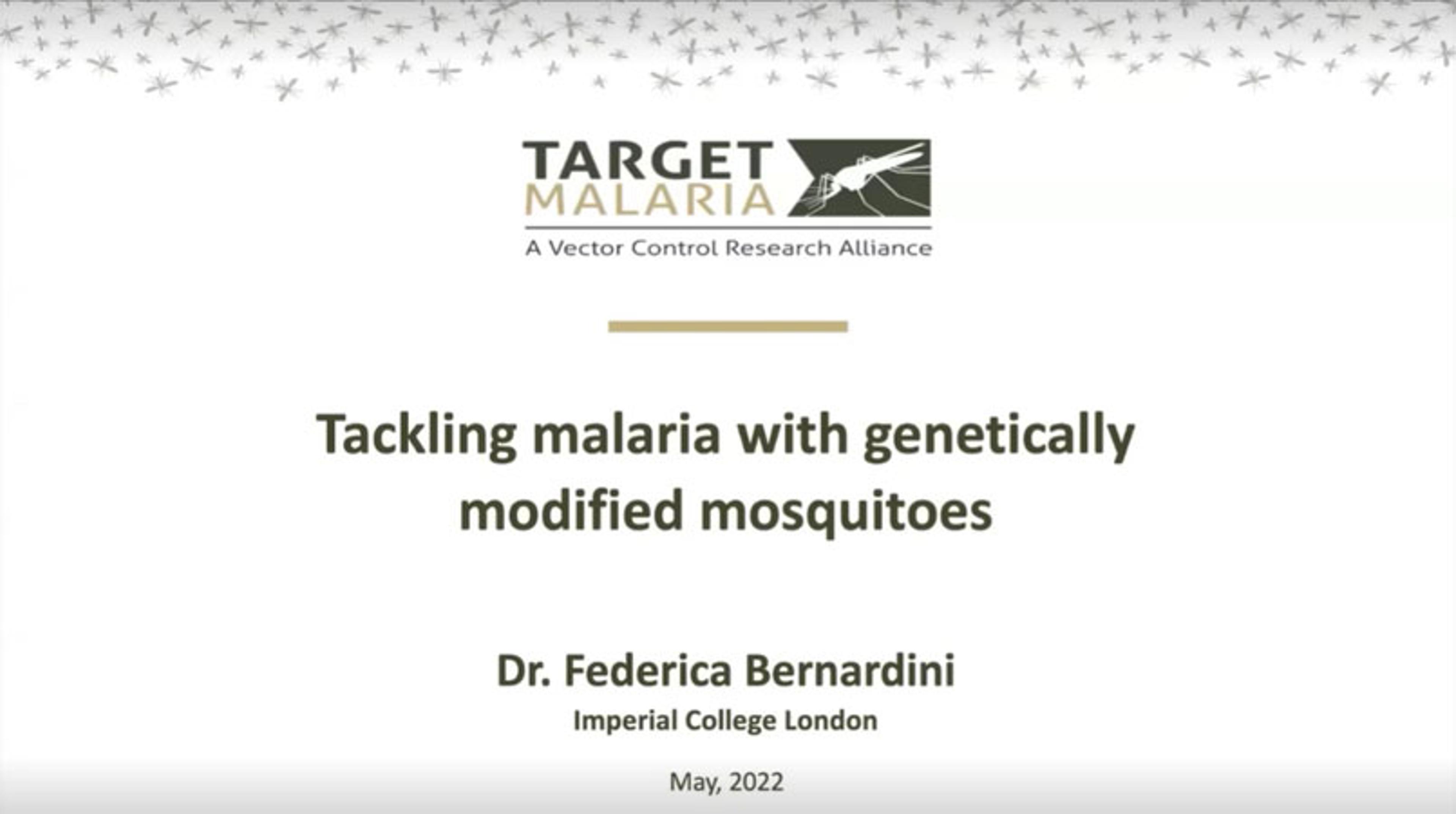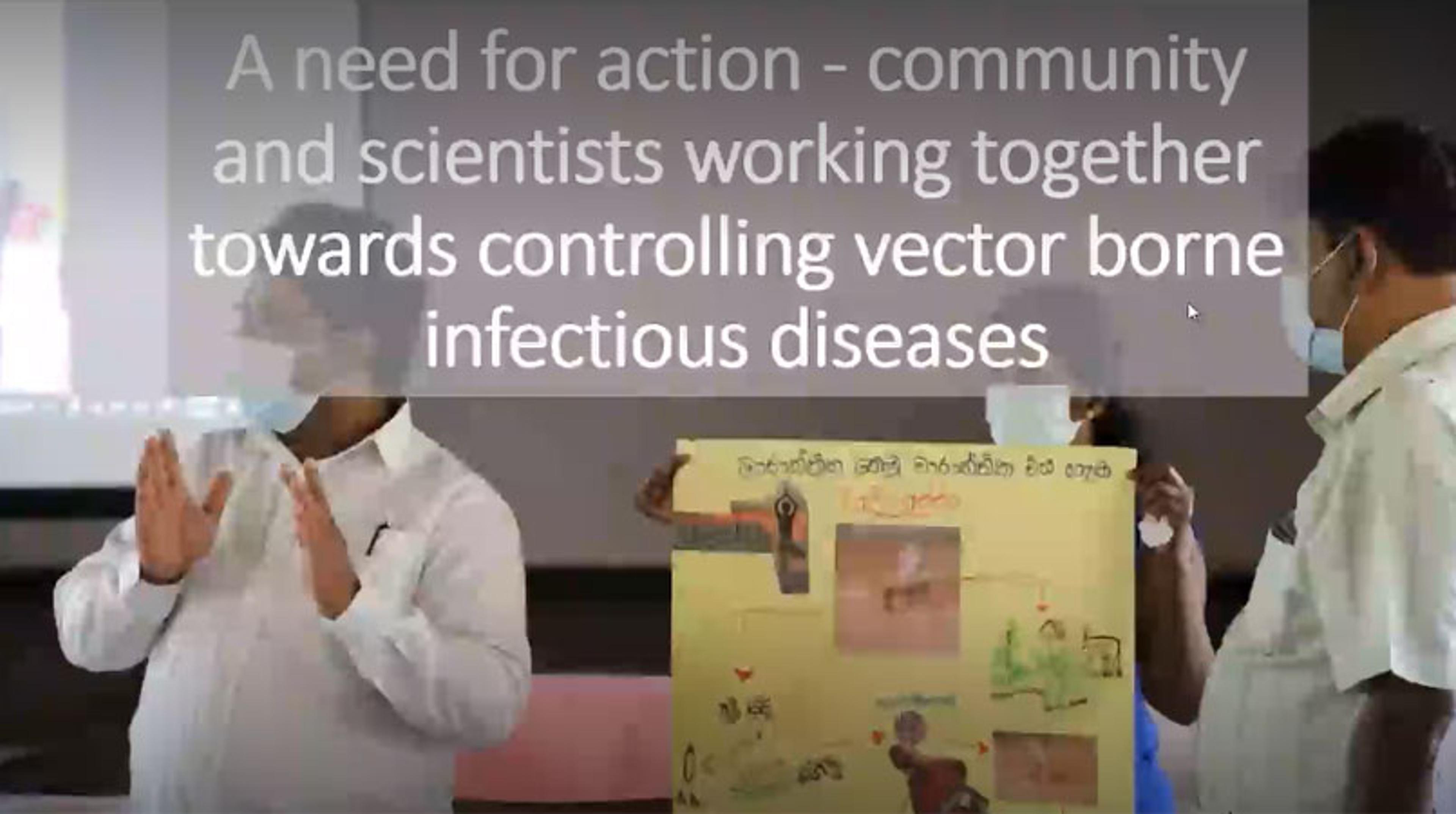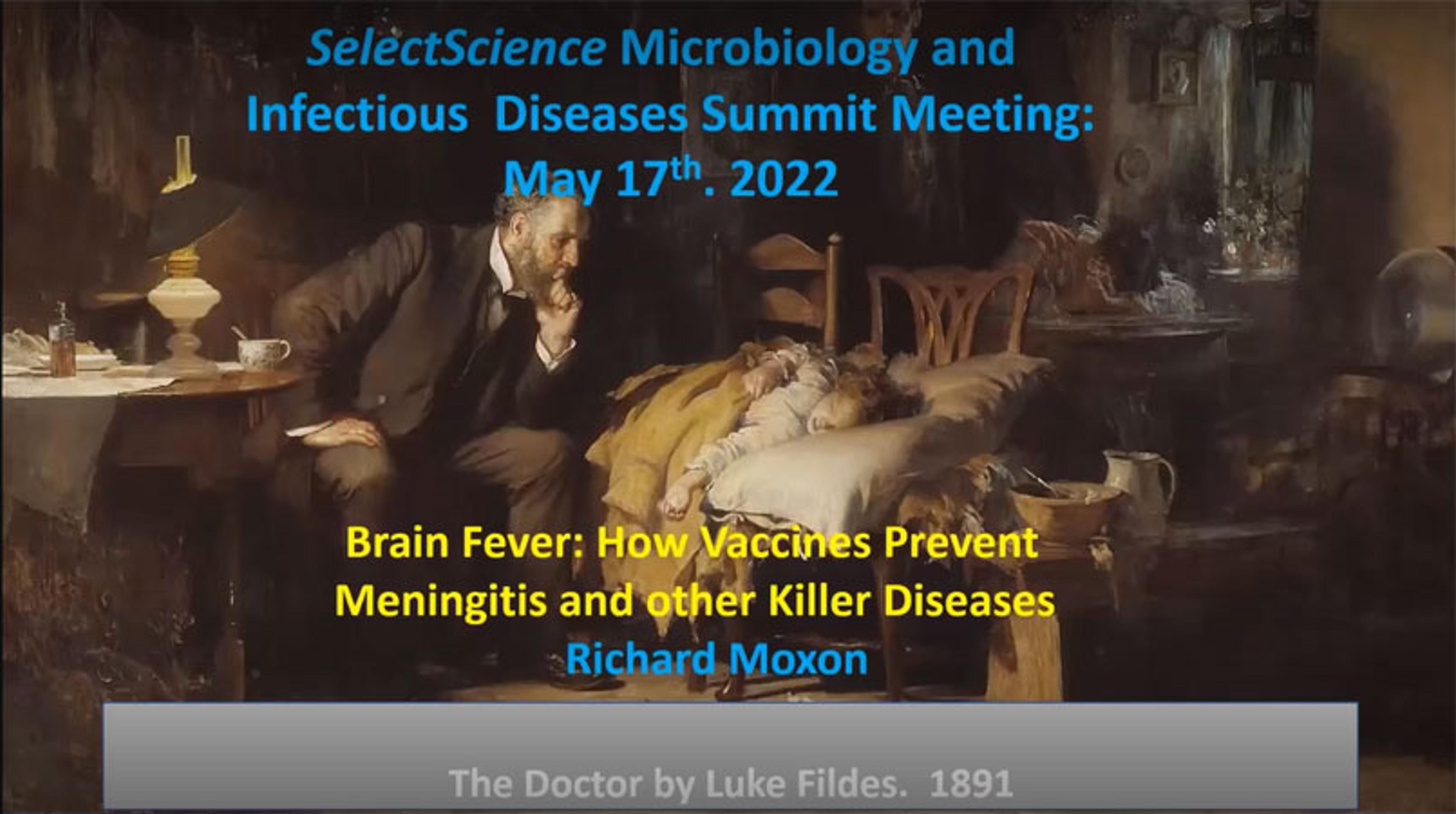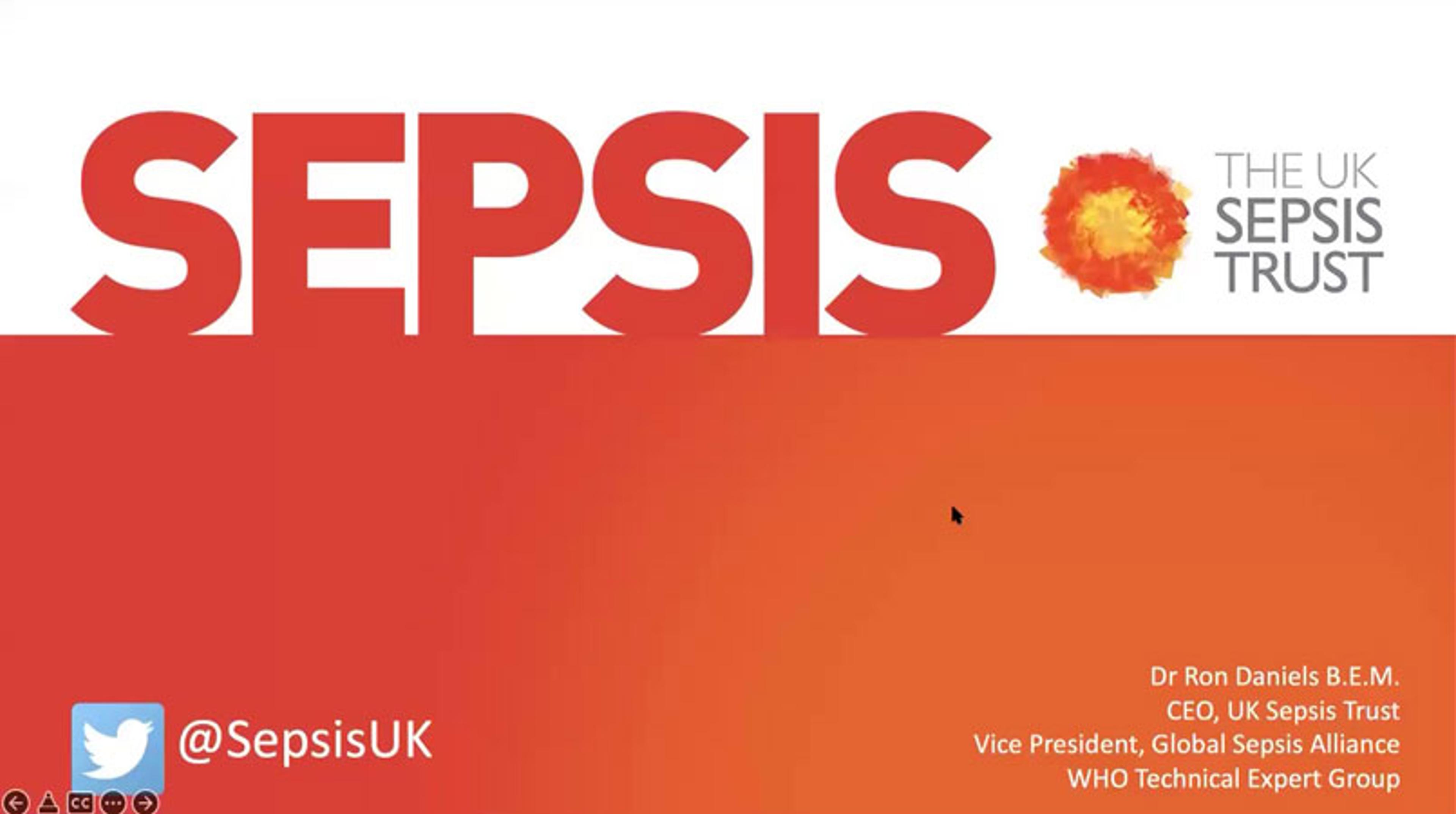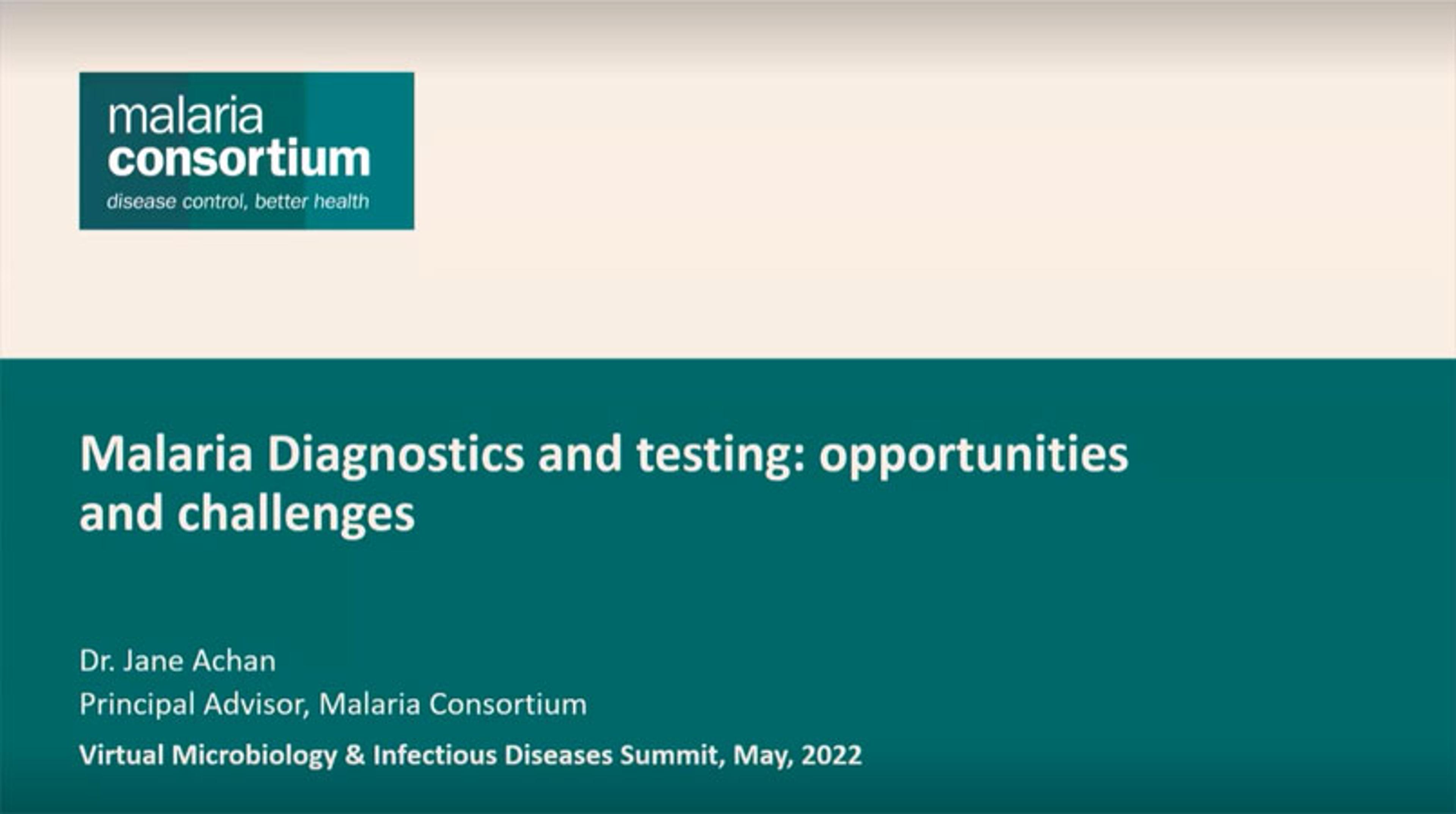Federica Bernardini is a Research Associate at Imperial College London, working on novel strategies to control the mosquito vector of human malaria. Bernardini has been working on the development of synthetic biology approaches for the genetic control of malaria-transmitting mosquitoes. These technologies are exploring the potential to induce a distortion in the sex ratio of the target mosquito population (male mosquitoes that produce mostly males) as well as the potential to tackle female mosquitos’ fertility. In both cases, the goal is a reduction in the mosquito populations that are main vector of malaria. In recent years, the ‘gene drive’ based technologies have shown a great potential, in lab settings, to reduce the number of these mosquitoes in a relatively short time, generating extraordinary interest in the field. Bernardini is significantly involved in the scientific activities within Target Malaria, a not-for-profit research consortium mainly funded by the Bill and Melinda Gates foundation. The consortium aims at developing and implementing cost-effective and sustainable genetic technologies to control mosquitoes and reduce malaria transmission and its currently actively working in Burkina Faso, Mali, Ghana, Uganda and Cape Verde.
